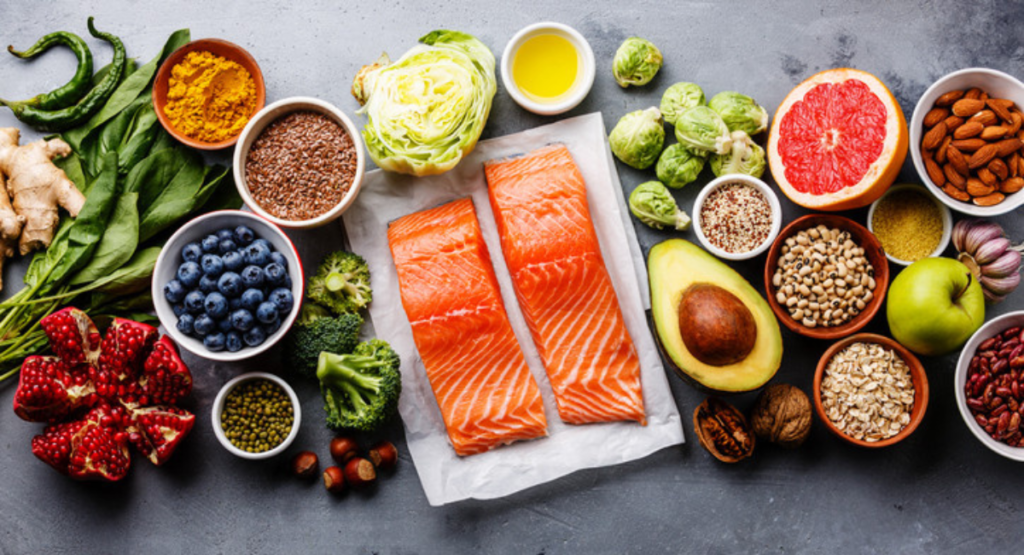Welcome to a journey of empowerment and proactive health choices! As we traverse the realms of dietary habits conducive to dementia prevention, we uncover the significance of what we consume daily. Our food choices wield remarkable influence over our cognitive well-being, offering a shield against the onset of debilitating conditions such as dementia. By steering clear of certain foods, particularly those highlighted in discussions on “Foods to Avoid for Dementia Prevention,” we pave the path for a brighter, more vibrant future, brimming with mental acuity and clarity.
The Role of Nutrition in Dementia Prevention
Nutrition serves as the cornerstone of holistic health, impacting not just our physical vitality but also our cognitive prowess. The research underscores the profound connection between dietary patterns and brain health, emphasising the pivotal role of nutrition in staving off cognitive decline. As we delve into the top 10 foods to avoid for dementia prevention, let us embark on a journey of enlightenment and empowerment, fortifying our minds against the ravages of time.
1. Sugar-laden Delights
Indulging in sugary treats may offer temporary gratification but poses long-term risks to cognitive function. Excessive sugar consumption not only disrupts glucose regulation but also fuels inflammation in the brain, fostering an environment conducive to cognitive decline. Steering clear of sugary delights is paramount in safeguarding our cognitive well-being, paving the path for sustained mental clarity and vitality.
2. Trans Fats
Trans fats, lurking insidiously in processed foods and fried delicacies, pose a grave threat to brain health. These artificial fats not only spike cholesterol levels but also instigate oxidative stress and inflammation in the brain, accelerating cognitive decline. By shunning trans fats and embracing wholesome alternatives, we nurture our brains with the nourishment they deserve, fortifying our cognitive resilience against the onslaught of time.
3. Processed Meats
Processed meats, laden with preservatives and additives, spell doom for cognitive health. High consumption of processed meats has been linked to an increased risk of cognitive impairment and dementia, underscoring the imperative of prudent dietary choices. By swapping processed meats for leaner, more wholesome alternatives, we embark on a journey of cognitive preservation, nurturing our brains with the vitality they crave.
4. Sodium Overload
Excessive sodium consumption not only wreaks havoc on cardiovascular health but also imperils cognitive function. High sodium intake escalates blood pressure levels, compromising cerebral blood flow and engendering cognitive impairment. By curtailing sodium intake and embracing a low-sodium diet rich in whole foods, we safeguard our cognitive faculties, fortifying our minds against the ravages of time.
5. Artificial Sweeteners
While touted as a calorie-saving alternative, artificial sweeteners harbour insidious threats to cognitive health. Research suggests a correlation between artificial sweetener consumption and an increased risk of dementia, urging caution in our dietary choices. By opting for natural sweeteners such as stevia or honey, we prioritize cognitive well-being, nurturing our brains with the nourishment they crave.
6. Alcohol
While moderate alcohol consumption may confer cardiovascular benefits, excessive intake spells trouble for cognitive function. Chronic alcohol abuse inflicts irreversible damage on brain cells, precipitating cognitive impairment and dementia. By practicing moderation and savoring alcohol in moderation, we strike a delicate balance between indulgence and restraint, safeguarding our cognitive vitality for years to come.
7. Refined Carbohydrates
Refined carbohydrates, ubiquitous in processed foods and sugary delights, sabotage cognitive health with their detrimental effects on blood sugar levels. Consuming refined carbohydrates triggers rapid spikes and crashes in blood glucose, impairing cognitive function and fostering brain fog. By opting for complex carbohydrates such as whole grains and legumes, we stabilize blood sugar levels, nurturing our brains with sustained energy and vitality.
8. High-Fat Dairy
While dairy products may feature prominently in our diets, certain high-fat variants pose risks to cognitive health. High-fat dairy consumption has been associated with an increased risk of cognitive decline and dementia, necessitating prudent dietary choices. By opting for low-fat or plant-based alternatives, we safeguard our cognitive faculties, nurturing our brains with the nourishment they deserve.
9. Red Meat
While red meat may offer a source of protein and essential nutrients, excessive consumption harbours risks to cognitive health. High intake of red meat has been linked to an increased risk of cognitive decline and dementia, urging moderation in our dietary habits. By embracing leaner protein sources such as poultry, fish, and plant-based alternatives, we prioritize cognitive well-being, fortifying our minds against the ravages of time.
Conclusion
In our quest for cognitive vitality and resilience, dietary choices wield unparalleled influence, shaping the trajectory of our cognitive well-being. By heeding the call to exclude these 10 vital foods from our diets, we embark on a journey of empowerment and proactive health choices, nurturing our brains with the nourishment they deserve. Let us embrace the power of nutrition in safeguarding our cognitive faculties, forging a path towards a future brimming with mental acuity, clarity, and vitality, including mindful consideration of “Foods to Avoid for Dementia Prevention.”
We are India’s first comprehensive continuum care provider. We provide multidisciplinary out of hospital care to acute and post-acute and chronically ill patients at our critical care facilities and your home.


